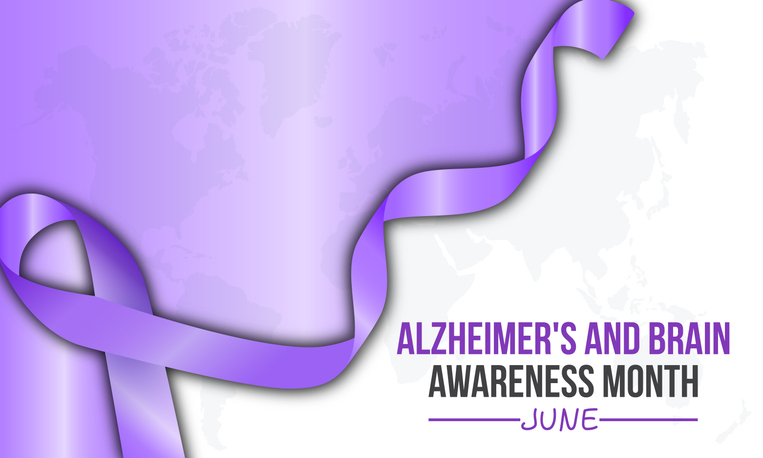It’s Alzheimer’s and Brain Awareness Month: Here Are 5 Proactive Practices for a Healthy Brain

By Joy Stephenson-Laws, JD, Founder
I’m constantly talking about America’s obesity epidemic. But I believe another crisis we need to shine more light on is Alzheimer’s disease. It is the most common type of dementia (accounting for 60 to 80 percent of dementia cases, according to the 2023 Alzheimer's Disease Facts and Figures report from the Alzheimer’s Association).
Although Alzheimer’s is most common among people over the age of 65, the Alzheimer’s Association reports that Alzehimer’s starts to develop 20 years or more before memory loss and other symptoms appear. Just because you may be young does not mean that you can afford to not be proactive about preventing this devastating neurodegenerative disease that is progressive and currently has no cure.
Let's all be proactive by implementing the following 5 practices.

- Be mindful of your sugar intake. Eliminate or greatly reduce processed and refined sugars.
Many people will not like me for this suggestion, but sugar is really not good for you. I’m not talking about natural sugars found in whole foods such as fruits, beets and sweet potatoes. You know what I mean - donuts, cakes, sodas, cookies and other processed and ultra-processed foods.
Scientists from Wake Forest University School of Medicine recently conducted a study and found evidence suggesting that having a high sugar intake and increased blood glucose levels cause amyloid plaque buildup to occur in the brain. This type of buildup in the brain is a well-known feature of Alzheimer’s disease.
“The beta-amyloid protein involved in Alzheimer’s comes in several different molecular forms that collect between neurons. It is formed from the breakdown of a larger protein, called amyloid precursor protein. One form, beta-amyloid 42, is thought to be especially toxic,” according to the National Institute on Aging.
“In the Alzheimer’s brain, abnormal levels of this naturally occurring protein clump together to form plaques that collect between neurons and disrupt cell function.”
According to the report discussing the study from Wake Forest, it is known that people with type 2 diabetes are at a greater risk of developing Alzheimer’s disease. If you are diabetic or prediabetic, it is important to control your blood sugar. Get your sugar from nutrient-dense, fibrous foods that will actually help balance blood sugar levels. Berries, including blueberries and strawberries, are great options.
- Control your blood pressure.
“Researchers have known about the link between blood pressure and Alzheimer’s for years. In 2013, investigators showed that older people with high blood pressure, or hypertension were more likely to have biomarkers of Alzheimer’s in their spinal fluid. Another study found that the more blood pressure varied over an eight-year period, the greater the risk of dementia,” according to John Hopkins Medicine.
More often than not, people do not feel symptoms right away when they have hypertension. This is why it is always good to know where you stand, and home blood pressure monitoring can let you know exactly where you stand in between doctor’s visits. To learn more about this, check out these pH Labs blogs.
There is so much you can do to maintain a healthy blood pressure such as exercise regularly, maintain a healthy weight, manage stress and follow a balanced, nutrient-dense diet, but I think this pH Labs blog in particular really gets into the details of how you can truly be proactive and some key differences between men and women when it comes to maintaining a healthy blood pressure.
- Avoid a sedentary lifestyle. Avoid it like the plague!
There is a reason why sitting for prolonged periods of time has been called the new smoking. Not only can it contribute to weight gain, joint problems and even depression, but it may also increase the risk of developing Alzhiemer’s.
Research from UCLA found evidence suggesting that sedentary behavior is connected to thinning of an area of the brain called the medial temporal lobe.
“Such thinning can be a precursor to cognitive decline and dementia in middle-aged and older adults,” according to UCLA.
Check out this pH Labs blog about how aerobic exercise may help prevent Alzhiemer’s.
- Get plenty of sleep.
"Growing evidence suggests that improved sleep can help prevent Alzheimer's and is linked to greater amyloid clearance from the brain," according to Dr. Gad Marshall, referenced in this article from Harvard Health Publishing.
For many, this may be one of the hardest things to do on this list. So many suffer from insomnia and sleep issues, but it is a good idea to correct these. Read here on ways you can achieve good quality sleep.
- Don’t smoke.
There is evidence which suggests that 14 percent of Alzheimer’s disease cases worldwide are potentially attributed to smoking. Toxins in cigarette smoke contribute to chronic inflammation throughout the body. Smoking also increases your risk of heart disease and stroke, which are both health issues entangled in the web of the many contributing risk factors of Alzheimer’s.
“Alzheimer's disease and vascular dementia, have both been linked to problems with the vascular system (your heart and blood vessels). It is known that smoking increases the risk of vascular problems, including via strokes or smaller bleeds in the brain, which are also risk factors for dementia,” according to the Alzheimer’s Society.
Take a good look at this list, and assess if there is room for improvement in your daily life practices.
Also know that making sure you have a healthy balance of essential nutrients like magnesium, is key to maintaining healthy brain aging and helping reduce your risk of dementia.
Taking routine nutrient tests will determine if you have any nutrient imbalances or deficiencies. And if you do, a competent healthcare professional can work with you on making the necessary dietary changes and recommend good quality supplements if necessary.
Finally, as we get older our bodies become less efficient at absorbing the nutrients from the foods we eat. To combat this, I recommend utilizing pH IV Vitamin Drips. They provide nutrients (and hydration) directly into the bloodstream to help boost nutritional status and help with energy levels.
Enjoy your healthy life!
Disclaimer: This article is not intended to provide medical advice. Please consult with your doctor or another competent healthcare practitioner to get specific medical advice for your situation.
The pH professional health care team includes recognized experts from a variety of health care and related disciplines, including physicians, attorneys, nutritionists, nurses, and certified fitness instructors. This team also includes the members of the pH Medical Advisory Board, which constantly monitors all pH programs, products, and services. To learn more about the pH Medical Advisory Board, click here.







